
Cuba, Latin America: Week in Review, United States
Cuba Agrees To Free More Dissidents Into Exile In Spain; U.S. May Take Some
August 25, 2010 By Staff
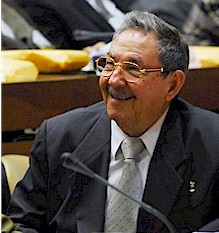
Cuban head of state Raúl Castro.
Today in Latin America
Top Story — Cuba’s Roman Catholic Church said Tuesday that six more political prisoners will be released into exile in Spain under an agreement with President Raúl Castro.
Tuesday’s announcement comes less then two months after the Castro government agreed to release a number of political prisoners arrested in a March 2003 crackdown on organized political opposition and sentenced to long prison terms.
The next six ready for release are Víctor Arroyo Carmona, Alexis Rodríguez Fernández, Leonel Grave de Peralta Almenares, Alfredo Domínguez Batista, Próspero Gainza Aguero and Claro Sánchez Altarriba, said Church official Orlando Márquez said in a statement, according to The Associated Press.
The announcement also comes on the heels of Monday’s word that the United States is open to admitting some of the freed Cuban political prisoners who went to Spain.
“Some that have made the trip from Cuba to Spain have inquired about coming to the United States,” State Department spokesman Philip Crowley, according to AFP. “We will evaluate those cases… on a case-by-case basis.”
Some of the exiled Cubans living in Spain have made inquiries about moving, but none have formally requested to live in the United States, Crowley added.
U.S. Secretary of State Hillary Clinton also had a telephone interview with Spanish Foreign Minister Miguel Angel Moratinos on Saturday to discuss the freed Cuban dissidents.
Just Published at the Latin America News Dispatch
- An Afro-Colombian community is facing expulsion to make room for gold exploration. The eviction — originally scheduled for Aug. 18 — has been suspended by the courts twice, but the community’s situation remains precarious. Roque Planas has more.
- While the Obama administration and Congress inch toward loosening travel restrictions against Cuba, the trade embargo remains a firm fixture of U.S. policy toward the island. But the prospect of oil drilling in Cuba is prompting officials and analysts to rethink that policy. Raisa Camargo has the story.
- A new report by the advocacy group National Council of La Raza says that programs allowing local police to enforce immigration law are ineffective and misuse authority. Alison Bowen has the story at her blog, Beyond Borders.
- Documents declassified by the National Security Archive in Washington indicate that the Nixon administration advocated the use of death threats in order to save Dan Mitrione, a U.S. official who was kidnapped and executed by leftist guerrillas.
Headlines from the Western Hemisphere
North America
- Republican National Committee chairman Michael Steele said Tuesday that Arizona’s controversial immigration measure does not reflect the beliefs of all Republicans.
- Jimena Navarette, Miss Mexico, was crowned the winner of the Miss Universe pageant Monday night. Navarette, from Guadalajara, is reportedly joined by many Mexicans in hoping the win will boost the country’s image internationally.
- The dismembered bodies of two men were hanged from a bridge Tuesday on a highway leading to Acapulco. This follows the recent hanging of four bodies in Cuernevaca over the weekend.
Caribbean
- The U.S. Chamber of Commerce urged the House of Representatives on Tuesday to quickly pass a bill that would lift travel restrictions to Cuba.
- Four masked men stole $250,000 from a resort casino in northern Puerto Rico, the casino said Tuesday.
Central America
- The Secretary General of the Organization of American States (OAS), José Miguel Insulza, met with the President of Costa Rica, Laura Chinchilla, Tuesday in San Jose. The two reportedly discussed the possible return of Honduras to the OAS.
- Guatemala has reportedly been warned of rough seas and heavy flooding throughout the week, due to tropical storm Frank, which hit the nation on Sunday.
Andes
- Authorities in Peru said Tuesday they have begun disciplinary action against jailers who photographed suspected killer Joran van der Sloot posing with two other men held in connection with high-profile killings there.
- Three teens who were on a 69-name hit list posted to Facebook have been killed in the past 10 days in a southwestern Colombian town, officials say.
- Ecuador’s Huaorani Indians are supporting a government plan that asks wealthy countries to put up $3.6 billion to protect a pristine Amazon rain forest preserve by leaving its rich oil deposits untouched underground.
- Bolivia’s public health authorities declared the province of La Paz on epidemiological alert due to an outbreak of bubonic plague detected along the border with Peru, the government said on Tuesday.
- Unstable soil gave way at an abandoned gold mine in Venezuela being worked by wildcat miners, killing six and injuring two, authorities said Tuesday.
Southern Cone
- Critics are accusing Argentine President Cristina Fernandez de Kirchner of eroding press freedoms in her effort to investigate the sale of Argentina’s largest newspaper-print provider, Papel Prensa SA, to a newspaper group during the country’s 1976-83 military dictatorship.
- The Argentine government called on striking truckers to stop their week-long highway blockade of steel company Ternium Siderar, which operates 9 plants in Argentina.
- Brazilian aircraft manufacturer Embraer said Tuesday that the Chilean Air Force may buy 6 of its cargo jets.
- An 18 year-old Uruguayan won the country’s first gold medal at the Youth Olympic Games in Singapore.
Image: Trinidad-News.com @ Flickr.
Subscribe to Today in Latin America by Email
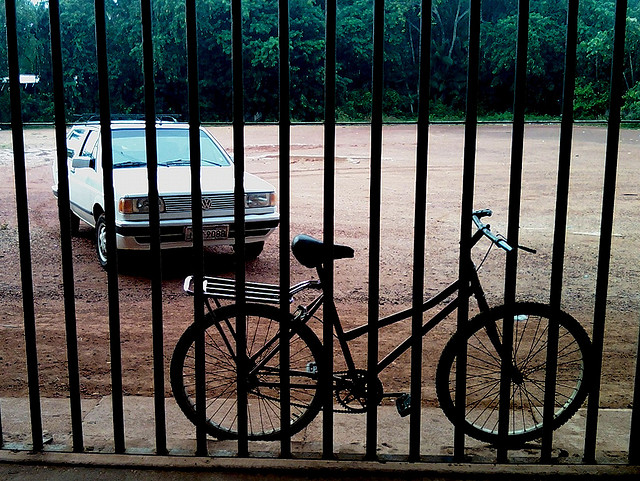

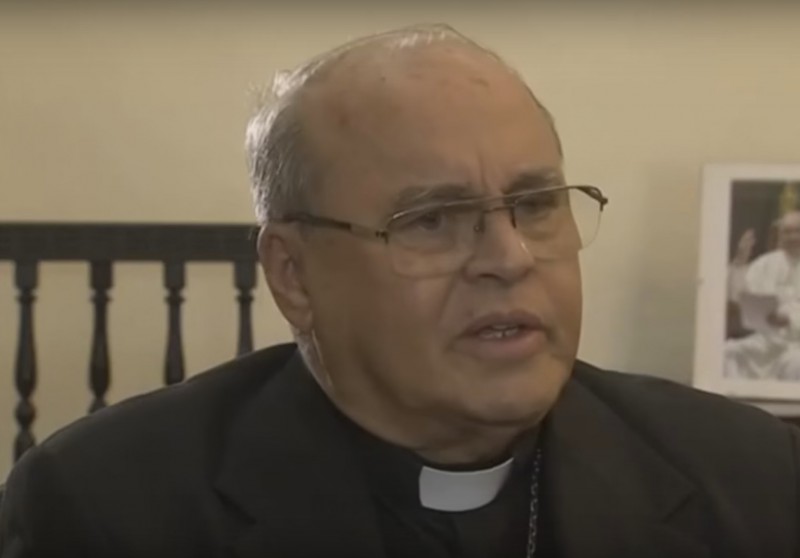
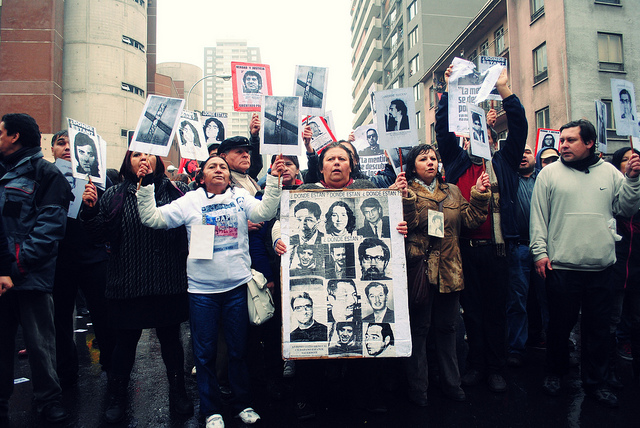
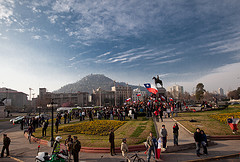

1 Comment
Interesting how they count the political prisoners and what crimes they are convicted of in Cuba. For instance, the rolls of so-called “political prisoners” do not include those who commit what in other countries would amount to petty larceny and other minor criminal infractions–such as stealing fruit from a government owned orchard (actually all are government owned) or dealing in black market goods to feed your family or procure unavailable goods. These number in the thousands with heavy prison times. The “real” political prisoners are not violent saboteurs seeking to topple the Castro dictatorship. They are many times poets and journalists and other such dissidents merely expressing a view different than that dictated by the government.
At least let’s get the numbers straight!
Great that the Catholic church has done thiswonderful work.
Viva Cuba Libre!
Comments are closed.